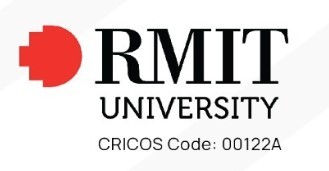
Master of Engineering (Electronic Engineering)


Overview
Duration
FULL-TIME 2 YEARS
FULL-TIME 2 YEARS
Scholarship
YES
YES
Fee
AU$44,160
AU$44,160
Intake
FEBRUARY, JULY
FEBRUARY, JULY
Overview
- As part of your studies in the Master of Engineering (Electronic Engineering), you will study subjects that go beyond the theory of recent engineering developments.
- Areas of study include:
- electronic circuit design
- integrated circuit design and fabrication
- embedded electronics
- electronics control systems
- computer systems electronics
- microelectromechanical systems (MEMS)
- micro/nanoscale device design and fabrication
- sensors and actuators.
- This degree also has a focus on developing your technical, personal and business skills. As a result, you will be well equipped for leadership roles in business and industry. Qualified technologists with relevant industrial experience are encouraged to apply.
Inquire Now
Career
- As the electronics industry grows in Australia and internationally, there will be a demand for high-level graduates with up-to-date technical skills, combined with personal and business skills.
- Some of our recent graduates have gone onto work for Telstra, Optus, TPG, iiNET, Huawei, DJI, Hikvision, State Grid, Dahua Technology, (China) and TSMC (Taiwan Semiconductor Manufacturing Company, Limited).
- In the private sector, you may work in the design, manufacture and supply of electronic products; in energy, systems and services as technical experts; and business managers and executive officers. You may also choose to establish your own business operating in the local and international electronic market.
- The development of the Internet of Things will increase in the range of small electronic devices required to convert our cities to smart cities. Electronic engineers will play a key role in these exciting new developments.
- In the public sector, electronic engineers work on essential services such as telecommunications, transportation, security, defence, health, emergency services and the environment.
Entry requirement
- To study this course you will need to complete one of the following English proficiency tests:
- IELTS (Academic): minimum overall band of 6.5 (with no individual band below 6.0)
- TOEFL (Internet Based Test - IBT): minimum overall score of 79 (with minimum of 13 in Reading, 12 in Listening, 18 in Speaking and 21 in Writing)
- Pearson Test of English (Academic) (PTE (A)): minimum score of 58 (with no communication band less than 50)
- Cambridge English: Advanced (CAE): minimum of 176 with no less than 169 in any component.
Popular Courses
Start your journey with landmark today!
Find your perfect course
Answer a few questions and
our course matcher will do the rest
Head Office
Level 5, IT Plaza
Kamaladi, Kathmandu
Tel: +977 14542781, 9845566225
E-mail: info@landmarkedu.com
Kamaladi, Kathmandu
Tel: +977 14542781, 9845566225
E-mail: info@landmarkedu.com
Sydney office
Suite 1 Level 1,
46 Macquarie Street,
Parramatta, NSW
Tel: +61 415 122 814
46 Macquarie Street,
Parramatta, NSW
Tel: +61 415 122 814
Branch office
Sahidchowk, Chitwan
Tel: 056-590825
Tel: 056-590825
Mahendrachowk, Biratnagar
Tel: 021-590828
Tel: 021-590828
Level 2, Milanchowk, Butwal, Rupandehi
Tel: 977-71-591694
Tel: 977-71-591694
© Landmark Education. All rights reserved.


